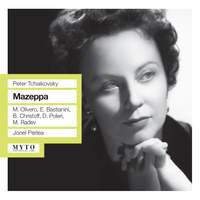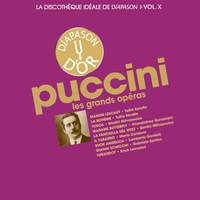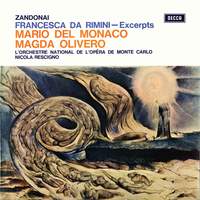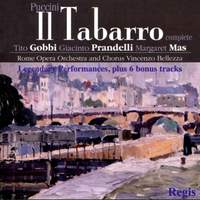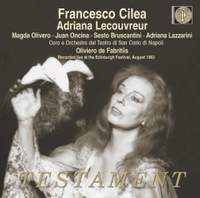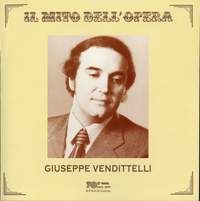Eventually it was in the heavier verismo repertoire, notably the title-roles in Tosca and in Cilea’s Adriana Lecouvreur, that she would really make her mark: her performance in the latter role in particular is still widely regarded as definitive, with her no-holds-barred theatricality, superb dynamic control and seemingly innate understanding of the rubato and portamento so crucial for this type of music paying thrilling dividends. (In his latter years, the ailing composer himself would entice her out of early retirement to take on the role once more, having been bewitched by her initial performances of it in the 1930s). She also had great success as Puccini’s Manon Lescaut, Butterfly, and Giorgetta in Il tabarro, as well as in other verismo operas including Giordano’s Fedora, Catalani’s La Wally and Zandonai’s Francesca da Rimini; in late career, she even made the occasional excursion into Czech and Russian repertoire (including the Kostelnicka in Janáček’s Jenůfa and the tormented old Countess in Tchaikovsky’s The Queen of Spades).
The voice itself was not conventionally beautiful (drawing some comparisons with Callas, with whom her career overlapped), but it was immensely characterful and always compelling: her tart, resiny timbre and distinctive fast vibrato are instantly recognisable, and her powerful upper register was matched by the robust middle and lower voice so necessary in the spinto roles which formed the backbone of her repertoire.
Olivero took a ten-year sabbatical from singing in the 1940s, shortly after her marriage (though she insisted in interviews that there was no pressure from her husband to withdraw from performance), but eventually resumed her career and sang for another three decades: she made her Met debut, as Tosca, at the age of 65, and gave her final full-role performance in Poulenc’s one-woman tour de force La Voix Humaine in 1981. But long after her retirement she continued to sing in public for pleasure and when coaching young singers: a YouTube video of her singing a brief aria by Zandonai, aged 99, reveals an undiminished ability to convey verismo style, even with understandably dwindling vocal resources.
Unlike many of her peers, Olivero had no long-standing relationship with a major record-company - but many of her greatest roles are preserved on smaller niche labels such as Andromeda and Opera d’Oro.
Find out more at https://en.wikipedia.org/wiki/Magda_Olivero




